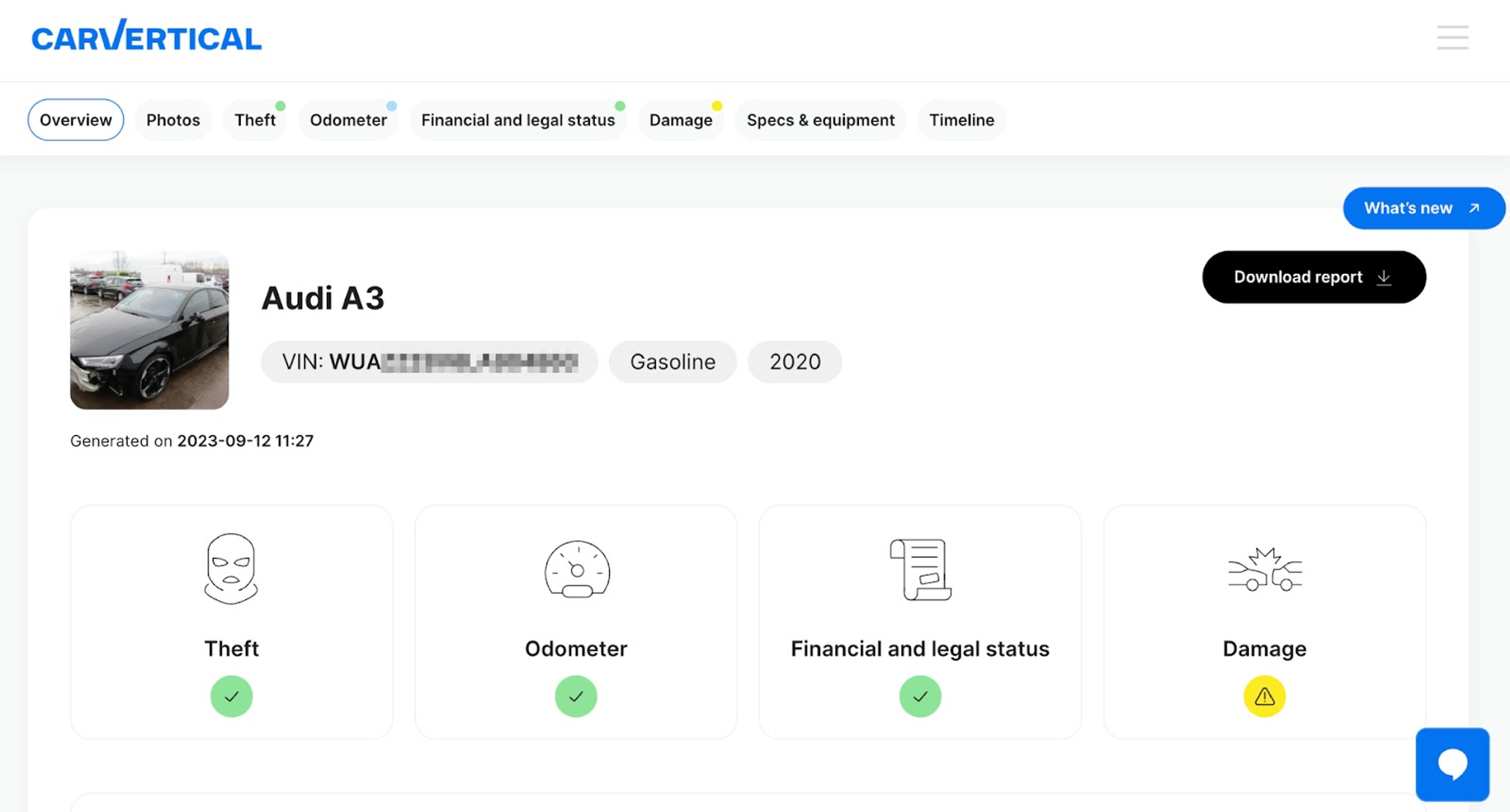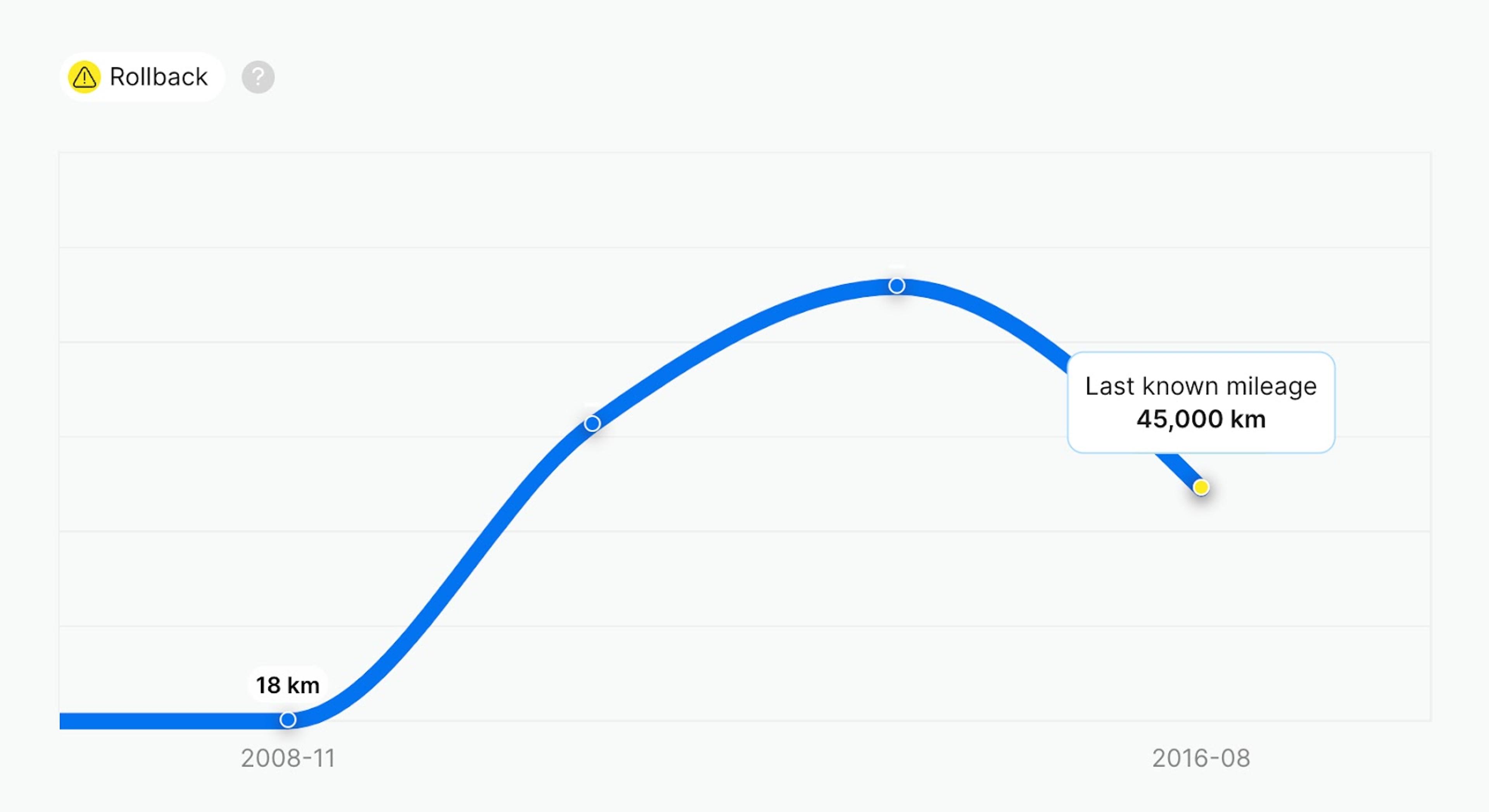16/10/2023
7 tips on negotiating with used car sellers to get the best deal

Renata Liubertaitė

Whether you’re buying a used car from a dealership or a private seller, one thing is (or should be) inevitable – the negotiation. Naturally, both sides want to shake hands on a good deal, so as a buyer, you have to sharpen your negotiating skills. Learning a few tricks can make a significant difference in the value you receive and the price you pay.
Let’s overview some practical strategies that can help you confidently navigate the negotiation process and get the best possible deal.

Used cars have dark secrets
Reveal them all! Just enter a VIN code and click the button:
How to get the best deal on a used car
So, you’re meeting the potential seller – how do you negotiate a used car price so that everyone (or you, at least) is happy?
1. Know exactly what you want
Knowing exactly what you want in terms of car make, model, year, features, etc., can help you do better research and put you in a better position when negotiating.
For example, if the seller’s asking price for a car is significantly higher than the market average, you could use this information as an argument to support your position.
Likewise, if the seller is offering something that doesn’t meet your criteria, it’s easier to say “no” with a clear plan and set of criteria in mind. Otherwise, it can be difficult to avoid getting caught up in emotions or the seller’s persuasive techniques.
Starting negotiations with a clear understanding of what you want will also give you more confidence. From the seller’s perspective, this may indicate that you’ve come well-prepared and their high-pressure sales tactics won’t work on you.
2. Set a budget and stick to it

Before going into negotiations, consider how much you can spend on a used car you’re interested in. Sticking to a budget will ensure you’re comfortable with your purchase and minimize the likelihood of buyer’s remorse. After all, buying a car should be a happy occasion, shouldn’t it?
Without a budget, it’s easy to get carried away and overspend. Sellers may feel you don’t have a firm budget and want to push more.
Setting clear financial boundaries protects you from high-pressure sales tactics or emotional impulses. When you know your financial limits, you’re less likely to be swayed by upsell attempts.
3. Do your research
Listing the features and capabilities of a used car you’d like to get is not the only thing that you need to do. Researching before buying is crucial to ensure you get those features in good condition and at a fair price.
For this, make sure to:
- Gather your knowledge from multiple sources. Read automotive forums, consumer reports, pricing and valuation guides, and check the discussions on sites like Reddit to understand the current market, catch up on the latest trends, common issues, and buyer experiences.
- Research the specific make and model. Check the reliability ratings and see if the model you're interested in has any common problems or recalls. If the car has known issues, this information can help negotiate a better deal.
- Know the fair market value of a car. Knowing the typical price range for similar vehicles will help you assess if the asking price is reasonable and give you more control in the conversation.
- Compare similar vehicles. Comparing multiple cars can help you identify the best deals and provide you with alternatives to consider. This can give you an advantage in negotiations as you’ll know there are other, possibly better, options on the market.
4. Get a vehicle history report
Car ads often include VIN numbers that can help you learn more about a specific vehicle.
With a VIN, you can use services like carVertical to get a comprehensive vehicle history report. It can include information about damages, title information, the financial and legal status, odometer readings, and more. Therefore, vehicle history reports are a great negotiation tool.

For instance, the report may reveal that a car had been involved in a serious accident, which was not disclosed by the seller. If this impacts the car's value, you can use this information to negotiate a lower price. Additionally, being aware of such issues can help you avoid potential problems down the road.
Another significant concern, especially with older or imported cars, is mileage rollbacks. The vehicle history report can reveal if the mileage has been tampered with, helping you address it during negotiations.

Moreover, car maintenance is generally done based on traveled distance, therefore, if you buy a car with fake mileage, you cannot be sure how well it was maintained in the past and potential problems that might still arise. Not to mention that lower mileage increases the car’s value – when the odometer is altered, you may unknowingly end up paying more than the car is worth.

Check your VIN
Avoid costly problems by checking a vehicle's history. Get a report instantly!
5. Wait for an opening offer (if there's no initial price)
Sometimes, silence can help you negotiate. Letting the seller start with their offer will tell you a lot about their expectations, and help you make a good counter-offer.
In short, this initial offer can influence the entire negotiation. Moreover, it could be lower than you’re prepared to pay, allowing you to save even more money on your purchase.
You can prompt an opening offer by stating the facts you’ve gathered during your research or directly asking about the price.
However, successful negotiation is also about being flexible – it’s equally important to adapt to each situation and be willing to break or bend the “speaking second” rule when necessary. Observe the seller, gather the information you need, and use it strategically.
6. Justify your counteroffer
If you don’t like the opening offer, respond with your own, but be ready to justify it. Justifying your counteroffer is crucial for building credibility and proving there may be some valid reasons behind lowering the price or increasing purchase value in some other way.
For example:
- Based on your research, you can show the prices of similar vehicles.
- If you've identified specific issues or necessary repairs, mention them, explaining how those factors impact the value of the vehicle and why you believe the price should be lower.
- A questionable maintenance history or signs of wear and tear can also be a strong argument.
Effective communication, reasons backed up by facts, and being open to listening to the seller’s perspective are critical to a more successful negotiation.
7. Know when to walk away

It may be tempting to just accept the “so-so” deal after a long and intense negotiation, but you should never forget that the final decision is yours. If you don’t feel 100% comfortable with the offer, don’t let emotions push you into a financial investment you’re not ready for.
If you have all the information you need and both you and the seller are firm in their positions, it may be a sign that a mutually agreeable deal is unlikely.
Some other signs that it’s time to walk away may include:
- The seller using high-pressure sales tactics or being overly aggressive
- The seller's unwillingness to address your concerns
- Evasive answers and lack of transparency
- Inconsistent/contradictory information
- An unwillingness to allow a thorough inspection
Overall, pay attention to your gut feeling. If something feels off, it most likely is. Walking away from a negotiation is normal, as you have to prioritize your needs and concerns.
Buying a car can be exhausting and take longer than expected. However, patience and sharp negotiation skills will help you find a satisfactory deal after all.
Private used car sellers vs. dealerships: is there a difference?
Certain negotiation strategies that might be effective with private sellers may not yield the same results at a dealership.
Dealing with private sellers tends to be more personal and informal. You often communicate with the owner directly, allowing a more flexible approach. Meanwhile, dealerships have a more structured process with established procedures and a trained sales staff – this can make the negotiation more challenging.
For example, dealerships often have set margins and are less willing to deviate from their pricing structure. Unlike with a private seller, building a personal connection may also not have any impact.

Always negotiate when buying a used car!
Dealerships and private sellers are often willing to adjust prices – they’re motivated to sell, after all. For someone who’s buying a used car, effective negotiation can result in substantial savings, making the purchase more budget-friendly.
Moreover, you can negotiate your way to some additional perks and services, maximizing the purchase value. Similarly, negotiation can help you avoid buying something you don’t really need or reduce fees that may be tacked on.
If you have specific concerns about the vehicle’s condition, maintenance history, or any potential issues, negotiation provides an opportunity to address and potentially resolve these concerns before finalizing the deal. Besides, a successful negotiation can set a positive tone for your relationship with a used car seller – beneficial, if any issues arise later.
Frequently asked questions

Article by
Renata Liubertaitė
Renata is a writer with over 8 years of experience in publishing, marketing, and SaaS companies. Writing in various fields and covering highly technical topics has taught her to turn complex things into something everyone can understand. When not writing for carVertical, she loves DIY projects and spontaneous bike rides.
